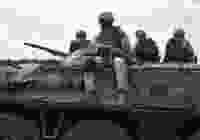
Armenian aggression must not go unchecked for peace to prevail
The Armenian-Azeri conflict remains unresolved and has created a humanitarian tragedy. The international community needs to recognise Armenia's breaking of international law, and must support Azerbaijan to bring peace to the region, argues Bob Blackman MP.
Following the signing of a Russian-brokered ceasefire between Azerbaijan and Armenia on Saturday, I was deeply saddened to hear that the Armenian artillery had fired once again on the city of Ganja. The city is home to half a million and is Azerbaijan's second-largest city. Destroying an apartment block, this barrage killed ten civilians and left scores of injured, and should be condemned internationally, if not acknowledged as a war crime.
As the longstanding Chairman of the Azerbaijan All-Party Parliamentary Group (APPG) in Westminster, I have had the pleasure of visiting Azerbaijan on numerous occasions. During the trips, I have always been astounded by the kindness, hospitality and tolerance of the people. Their nation is officially secular and is home to Muslims, Jews, Catholics, Christians, other religious and ethnic minorities and has a significant expat community.
However, for Azerbaijan, the unresolved Armenian-Azeri Nagorno-Karabakh conflict remains a constant matter of discussion. The conflict has resulted in the illegal Armenian occupation of Nagorno-Karabakh and seven surrounding regions. This has resulted in around one million Azerbaijanis becoming internally displaced persons (IDPs) and refugees for nearly 30 years. It has become a humanitarian tragedy. This equates to 10 per cent of the Azerbaijani population. In a close-knit country such as Azerbaijan, this means that almost everyone is related to an IDP or refugee.
During my visits to Azerbaijan, I have visited many of the IDP/refugee camps. These people all have one common wish – to return home. The first wave of IDPs lived in disused schools, factories and railway trucks. Since then, the Azerbaijani government has spent millions on housing and accommodation for its IDPs and refugees. But it is not home.
In 1993, the UN Security Council passed four resolutions condemning the Armenian occupation of Nagorno-Karabakh and the seven surrounding regions. This was followed by numerous other orders from international organisations such as the UN General Assembly, the European Court of Human Rights and Parliamentary Assembly of the Council of Europe.
In July of this year, I was shocked and saddened to hear that Armenian artillery had been used on the town of Tovuz which resulted in the loss of life among civilians and armed forces personnel. Understandably, Azerbaijanis and supporters of international law took to the streets to express their outrage in the UK and across the world. The international community and OSCE Minsk Group has stood by and not acted on this extremely sensitive issue that has remained unsolved since the 1994 ceasefire.
The situation took a turn for the worse following the re-ignition of hostilities on the 27th of September when the Armenian army then turned its artillery on several major towns and cities, including Ganja, home to over half a million civilians, as well as Barda, Terter, Khizi and Mingachevir, home to the country's largest reservoir and hydroelectric plant. The destruction of the reservoir would put hundreds of thousands of lives at risk of drowning. Armenian rockets have also targeted Yevlakh along the line of the Baku-Tbilisi-Ceyhan oil pipeline. This is an integral element of European energy security.
The OSCE Minsk Group has been tasked with determining a negotiated peace for 26 years. The influence that the vast Armenian diaspora living in countries such as France and the USA is vastly known and can be seen in the fact that the OSCE Minsk Group has not implemented its mandate. Recent statements by French leader, President Macron, in particular, have exposed partisan support for the Armenian side.
To date, hundreds of servicemen and civilians have given their lives in the reignited conflict. It is now time for the international community to unite with one voice, for Armenian troops to withdraw from Nagorno-Karabakh and the seven surrounding regions and for Azerbaijanis, Armenians and other ethnicities to live alongside each other in peace, harmony and understanding. This is the only viable way out of this conflict.
It is time for the international community to support Azerbaijan on its claim to its lands, as recognised by international law. I have and will continue to call on the UK Government to play a key role in the peace process and to press for the swift and complete withdrawal of all Armenian military forces from the illegally occupied territories of Azerbaijan as stated in UN Security Council resolutions adopted in 1993. My Early Day Motion (EDM 956) provides a brief background to the situation and I urge the Government to make a statement as soon as possible.













